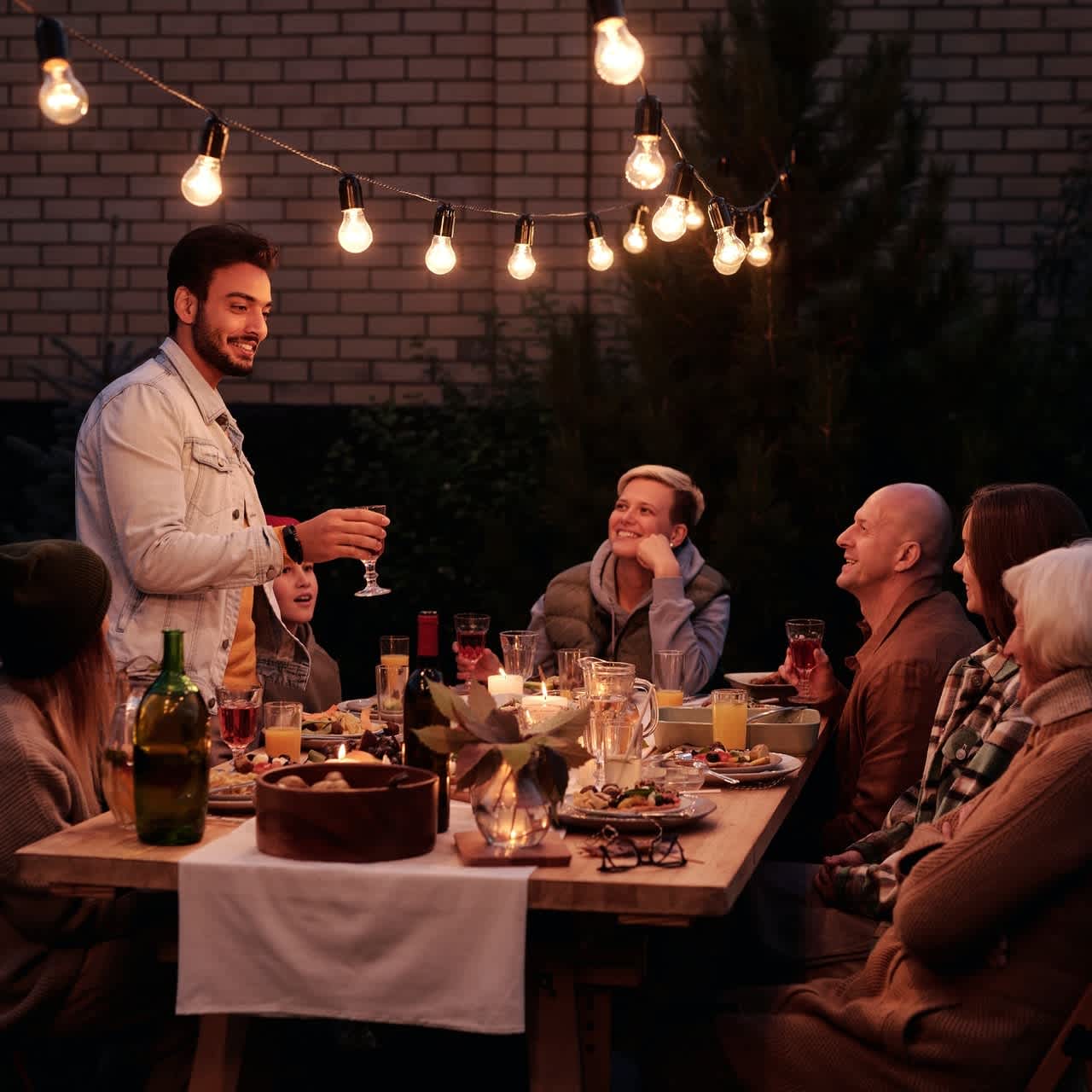
- POPSUGAR Australia
- Living
- How Many People Can You Safely Have Over For Thanksgiving? Doctors Weigh In
How Many People Can You Safely Have Over For Thanksgiving? Doctors Weigh In

All of the things I love doing on Thanksgiving – baking, eating turkey, playing football – center around my family. But this year, as many people are opting not to go home, Thanksgiving is going to be hard, and it’s OK to feel sad about it.
To slow the spread of COVID-19, the CDC recommends canceling your holiday travel plans and instead celebrating virtually with your family and friends whom you don’t live with. But if you are having an in-person gathering, it’s extremely important to limit the guest list. POPSUGAR talked to two doctors to find out how many people you should have over this Thanksgiving in order to keep you and those around you as safe as possible.
How Many People Can I Safely Have Over For Thanksgiving?
Coming from a big family, my holiday celebrations usually include about 25-30 people, but this year, we should really only be celebrating with the people we live with full-time. James Elder, DO, an internal medicine specialist at Texas Health Southwest Fort Worth, recommends keeping Thanksgiving gatherings to just the people in your household. “There is no way to determine a safe vs. less-safe number of guests to be present for the Thanksgiving holiday – or for any holiday,” Dr. Elder told POPSUGAR. “Keep in mind that for every person you encounter, your exposure and risk of contracting the virus is not limited to that single person but extends to every other person to which your contact has been exposed – including people they have been around in grocery stores, schools, or houses of worship. Because no safe number can be determined, the safest plan would be to enjoy this holiday season with persons with whom you already live.”
If you do have a few family members outside of your household who you still see, Bita Nasseri, MD, anesthesiology specialist based in Beverly Hills, CA, stressed the importance of keeping the guest list as small as possible. “It’s important to make sure that there is enough room for social distancing if you are celebrating with those outside your household,” Dr. Nasseri said.
What Precautions Can I Take to Make a Holiday Get-Together Safer This Year?
If you choose to do an in-person gathering that includes some people not in your household, there are some extra precautions you can take to make the holiday get-together a little safer. Dr. Elder said you should practice the same precautions as any gathering: “Wear a mask when not eating, wash hands, and maintain a socially appropriate distance of six feet.” He also suggested carrying your own small bottle of alcohol-based hand sanitizer and cleaning your hands after coming into contact with another person and before eating.
To be even more cautious, Dr. Nasseri suggests that every single guest should get a COVID-19 test before the gathering. After your test comes back negative, she recommends quarantining and limiting exposure to others to make sure the test results do not change. Additionally, Dr. Nasseri said, “If you are able to host Thanksgiving outdoors where there is room for social distancing, that would be ideal. You can also have one person that is designated to serve all food to limit direct contact.”
In a general sense, Dr. Nasseri said you should keep your immune system at its best by getting enough sleep each night, eating healthy, and making sure to exercise. “As it gets colder outside, we also need to take preventative steps,” she said. “My favorite way to keep my body strong through the year is by making sure I’m getting my vitamins. My favorite are EUKA’s Fite Vite vitamins and their molecular helmet wellness roller, which clarifies the air around you to keep harmful pathogens from entering through your respiratory system.”
In What Circumstances Should I Have Nobody Over or Not Attend Any Parties?
Unfortunately, sometimes the risk is just too great to yourself or others to host a Thanksgiving party (or attend someone else’s). Both doctors we spoke to said if you or a family member is immunocompromised or have the highest risk of severe or significant consequences after contracting COVID-19 (such as people over 65, with diabetes, with high blood pressure, or with lung or heart disease), then you should stay home this year. Additionally, if you are experiencing any symptoms, like a sore throat, runny nose, or cough, you should quarantine at home, alone, until you are feeling better.
“It has been a while since Americans have been asked to put aside their personal wishes for a larger purpose,” Dr. Elder said. “However, at this time, such a sacrifice is wise. The more we engage in socially responsible behavior now, the lower the risk that we may become ill or may cause someone we love to contract the virus. By continuing to practice social distancing and restraint of gatherings based out of love, we may more quickly blunt the alarming rise of cases currently happening. By remaining home this year, we may more quickly return to a time of family gatherings. Please consider the long-term health of yourself and your family and stay home this year.”

